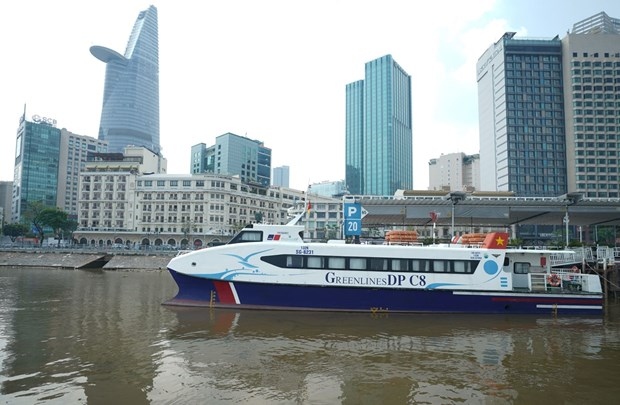HCM City exploits waterway tourism potential
Ho Chi Minh City has been holding various activities this year to promote waterway tourism, including the first-ever river festival and new waterway tours, aiming to better exploit its advantages with a dense river and canal network and rich riverside culture.

Ho Chi Minh City aims to better exploit its advantages with a dense river and canal network and rich riverside culture.
The first river festival in the city was held in August this year, providing tourists and residents with new inspiring experiences about the city’s culture throughout periods.
Director of the city’s Tourism Department Nguyen Thi Anh Hoa said the festival also helped State management agencies to better identify the city’s potential for waterway tourism and step by step build its brand as a riverside city.
At the recommendation of the city’s Department of Tourism, the municipal People's Committee has issued a plan on developing waterway tourism products in the city in the 2023-2025 period.
Under the city’s Tourism Development Strategy until 2030, waterway tourism products are identified as one of tourism products that make a difference for the city, satisfying international and domestic tourists’ needs for exploring cultural values.
The city has opened many waterway routes in the inner city, facilitating both passenger transportation and river tourism.
According to preliminary statistics of the tourism department, 123 waterway vessels are operating including 43 restaurant boats, accommodation ships, yachts and 80 canoes and small wooden boats.
In 2018, the city served 845,400 waterway tourists including 805,400 on river tours and 40,000 on sea tours. The figure in 2019 was 786,700, with 745,500 on river tours and 41,200 on sea tours.
To date, over 100 enterprises in the city are offering 150 waterway tours which are more and more diversified.
Deputy Director of the Department of Tourism Bui Thi Ngoc Hieu said that by 2025, the city's tourism industry aims to offer waterway tourism services on all Saigon River system (Nha Be, Soai Rap, Long Tau) with linkages to those in neighbouring localities of Dong Nai, Binh Duong, Tien Giang, Long An, and Ben Tre, and create more tours connecting seaports with river routes.
The city looks to turn waterway tourism into a distinctive tourism product by 2030.
Hieu said that to achieve the goal, the city needs qualified wharves and ports to serve tourism. It also needs mechanisms and policies to attract businesses to invest in facilities like wharves, waiting areas, or public restrooms to serve tourists.
For cruise tourism, the city needs to have a policy on allowing large ships to dock in ports in the city centre to effectively exploit Saigon port, she said.
Moreover, the city calls on businesses to invest in developing passenger transport routes between the city and Con Dao (an island in Ba Ria-Vung Tau province) to promote the development of inland waterway transport and coastal transport.
According to Nguyen Thi Hau, general secretary of the Ho Chi Minh City Association of History, as a riverside city, Ho Chi Minh City needs to design its river banks to beautify the landscape and optimise the values of the Saigon river. In particular, Saigon Port should be converted into a tourist port to facilitate the development of waterway tourism, she said.
VNA

